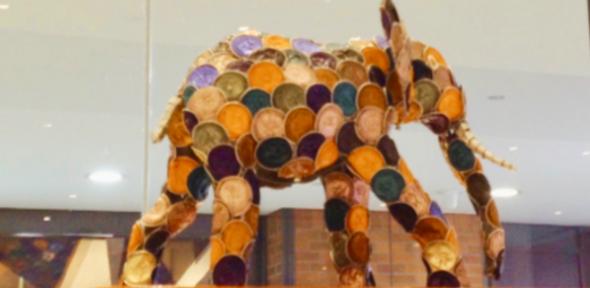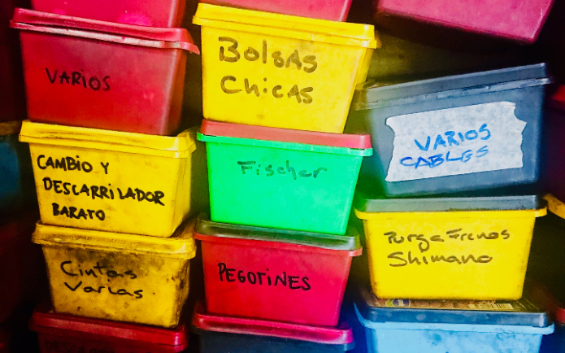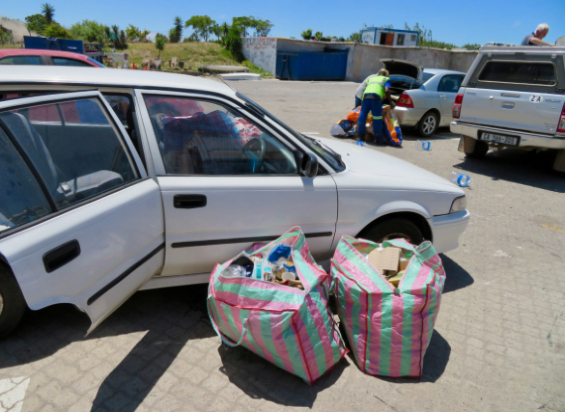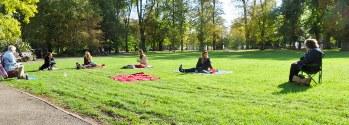
How do other countries waste less plastic?
Plastic waste is a global problem. Finding out what people do in other countries can help tackle problems in the UK. Researchers travelled to interview local communities in Japan, South Africa and Uruguay. Findings showed that, like people, plastics also have a ‘social life.’ Items like plastic bags have become more than just a way to carry groceries. Plastics items, like branded clothing, become symbols that say something about who we are. But exactly what our plastics use says about us is constantly changing. In turn, so is our willingness to use plastics differently.
What is the culture around plastics in Japan?
The idea of not getting a free plastic bag when shopping is a problem. This is because of a culture of high standards of customer service and cleanliness. To make people pay for something so basic, was seen by some as stinginess. One person said they felt embarrassed by carrying their shopping without a bag. Another said they felt shy about other people seeing what they had bought. Shoppers and shop owners both thought about theft. A plastic bag supplied at the till communicates that goods have been paid for. Shopping without a bag or using some other bag risked all customers looking like shoplifters.
Are there places where the plastics culture is similar to the UK?
Yes, there were similarities with Uruguay
In Uruguay, small plastic bottled water was refilled and re-used with tap water. Bigger 5-litre bottles were re-purposed as plant pots. Ice-cream tubs were also kept after their contents had been consumed. Similar re-use of bottles and tubs happened in Cambridge. Some households preferred transparent plastic with branding that was simple to remove. It meant it was easy to see what was inside and to add new labels. But unlike in the UK, ice-cream tubs in Uruguay were also used by small businesses. Uruguay is switching to a different way of recycling that will be similar to Europe. The campaign to launch the new scheme uses a Japanese girl showing local people how to recycle. Usually, adverts for behaviour change are of people the audience can relate to. Instead Japan is constructed as the bastion of best practice that Uruguay should follow.

Diego used stacked ice-cream tubs to store bike parts, tools, and accessories in his bicycle workshop
Cambridge has it easy compared to Cape Town
In the UK plastics are recycled as part of weekly collections. In South Africa, most people are provided with one wheelie bin for all their rubbish. People called ‘waste pickers’ sort through this waste and pick out anything worth selling. Residents who want to recycle need to make their own arrangements. In Cape Town the government provides centres where people can drop off their recyclable materials.

Centres are not always near to homes so if people want to recycle they must drive it to the nearest drop off facility
What if you don’t have a car?
Most people do not have a car or have recycling collected from their home, so a lot of plastic ends up in landfills. In some landfills waste pickers sift through waste and pick out plastic to sell to be recycled. But in some suburbs, plastic ends up in the streets or piled up on street corners. To tackle this problem, research involved setting up a recycling scheme in Cape Town. Teresa Perez worked with Rachel Mash (Green Anglicans) at Eluvukweni Church in Crossroads. The congregation collected 80kg of plastic in one month. Although this sounds like a lot, the prices for plastic bottles are very low. Findings showed that for many people, recycling plastic is not worth the effort.
Can I see what 80kg of plastic looks like?
Yes! Watch a team of volunteers crushing and sorting plastic bottles on Mandela Day in Cape Town.
This video is taken from the blog post titled ‘Mandela Day at Eluvukweni Church’ as part of the Valuing Plastic Project in South Africa
Still interested?
Research into Japan and the World is part of ongoing research happening here at Cambridge. You can find out more about research on waste work in Uruguay. Listen to Patrick O’Hare talking about differing meanings of waste on BBC Radio 4. Read about how social scientists research waste in general. Updates recycling on South Africa can be found on the Valuing Plastic Blog. If you are interested in the social life of plastic in other regions, read about our international workshop.





